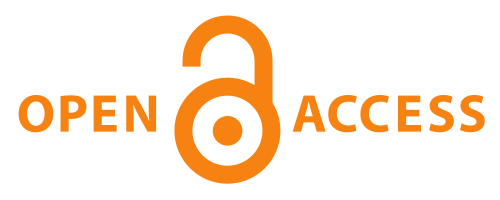Tag: publishing
Spring 2021 workshops from the Office of Scholarly Communication Services
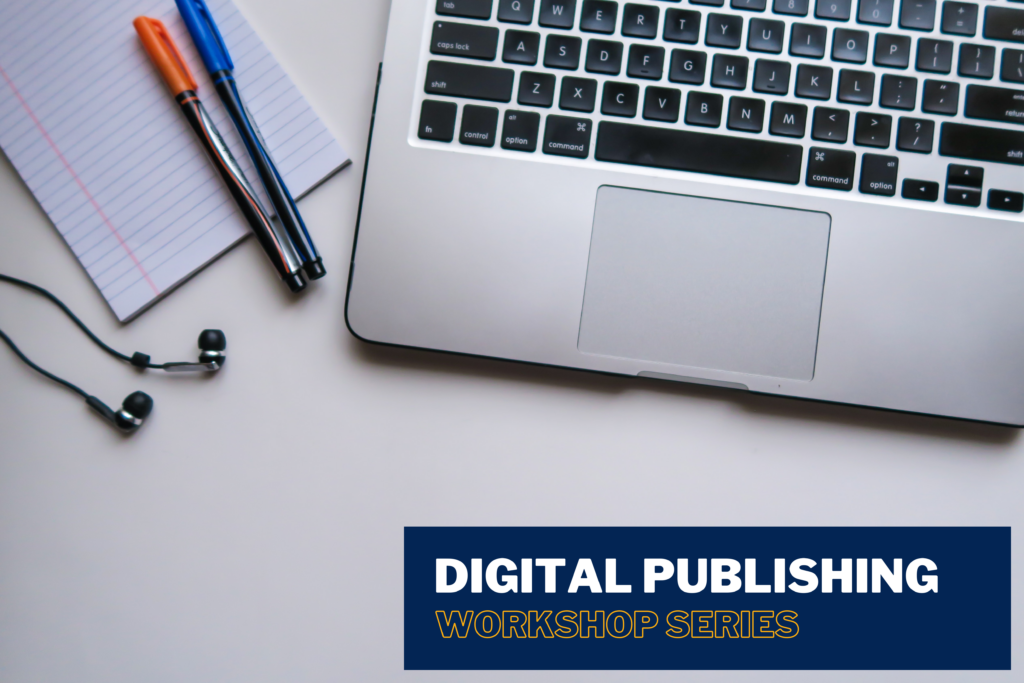
Once again this semester the Office of Scholarly Communication Services will offer workshops as part of the Library’s Digital Publishing Series. Here’s what’s coming up over the next few months.
Upcoming Workshops
Publish Digital Books and Open Educational Resources with Pressbooks
Tuesday, February 9, 2021
2:00–3:30pm
Online: Register to receive the Zoom link
If you’re looking to self-publish work of any length and want an easy-to-use tool that offers a high degree of customization, allows flexibility with publishing formats (EPUB, MOBI, PDF), and provides web-hosting options, Pressbooks may be great for you. Pressbooks is often the tool of choice for academics creating digital books, open textbooks, and open educational resources, since you can license your materials for reuse however you desire. Learn why and how to use Pressbooks for publishing your original books or course materials. You’ll leave the workshop with a project already under way.
Text Data Mining and Publishing
Tuesday, March 16th, 2021
11:00am–12:30pm
Online: Register to receive the Zoom link
If you are working on a computational text analysis project and have wondered how to legally acquire, use, and publish text and data, this workshop is for you! We will teach you 5 legal literacies (copyright, contracts, privacy, ethics, and special use cases) that will empower you to make well-informed decisions about compiling, using, and sharing your corpus. By the end of this workshop, and with a useful checklist in hand, you will be able to confidently design lawful text analysis projects or be well positioned to help others design such projects.
Other ways we can help
In addition to the workshops, we’re here to help answer a variety of questions you might have on intellectual property, digital publishing, and information policy.
- Check out our website for information on issues such as copyright and fair use, the scholarly publishing lifecycle and sharing research data, UC’s Open Access Policy.
- Interested in publishing your research Open Access? UCB Library can help defray the costs of an article processing charge (up to $2,500) or book processing charge (up to $10,000). See the Berkeley Research Impact Initiative (BRII) for more information.
- Do you want to create an open digital textbook? Take a look at UC Berkeley’s Open Book Publishing platform (anyone with a @berkeley.edu email can signup for a free account), and get in touch with us about our Open Educational Resources (OER) grant program.
- Keep an eye on our events calendar for more workshops and trainings.
- Follow our blog and social media.
Want help or more information? Send us an email. We can provide individualized support and personal consultations, online class instruction, presentations and workshops for small or large groups & classes, and customized support and training for departments and disciplines.
Upcoming workshop on how to share and publish data
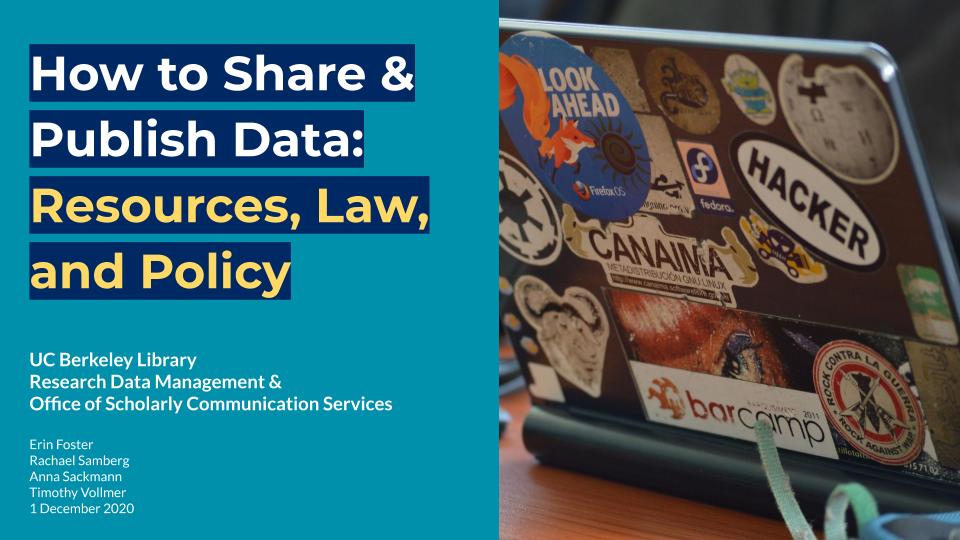
Are you unsure about how you can use or reuse other people’s data in your teaching or research, and what the terms and conditions are? Do you want to share your data with other researchers or license it for reuse but are wondering how and if that’s allowed? Do you have questions about university or granting agency data ownership and sharing policies, rights, and obligations? We will provide clear guidance on all of these questions and more in this interactive webinar on the ins-and-outs of data sharing and publishing.
Join the Library’s Office of Scholarly Communication Services and the Research Data Management Program as we:
- Explore venues and platforms for sharing and publishing data
- Unpack the terms of contracts and licenses affecting data reuse, sharing, and publishing
- Help you understand how copyright does (and does not) affect what you can do with the data you create or wish to use from other people
- Consider how to license your data for maximum downstream impact and reuse
- Demystify data ownership and publishing rights and obligations under university and grant policies
Intended audiences include faculty, grad students, post-docs, instructors, and academic support staff, but anyone interested is welcome to attend.
Publishing workshops
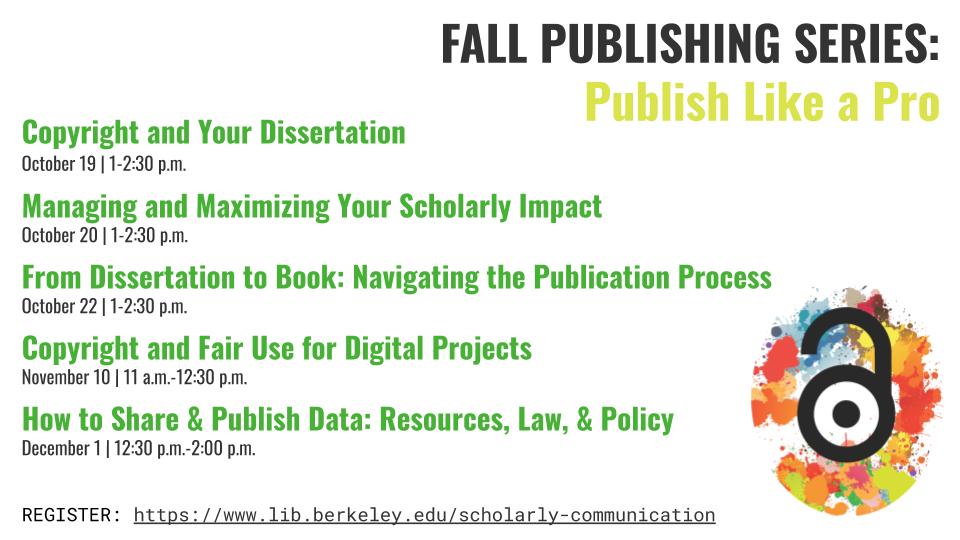
Copyright and Your Dissertation Oct 19, 1-2:30pm
Managing and Maximizing Your Scholarly Impact, Oct 20, 1-2:30pm
From Dissertation to Book: Navigating the Publication Process, Oct 22, 1-2:30pm
Copyright and Fair Use for Digital Projects, Nov 10, 11am-12:30pm
How to Share & Publish Data: Resources, Law & Policy, Dec 1 12:30-2pm
Fall workshops on copyright and publishing

Welcome back to a strange semester. While we can’t meet up together on campus, the Office of Scholarly Communication Services will continue to offer a full slate of online workshops to help students and early career researchers confidently steer their way through the waters of copyright and publishing. Here is what’s in store for the coming few months.
Upcoming Workshops
Publish Digital Books and Open Educational Resources with Pressbooks
September 15, 2020
10:00–11:30am
If you’re looking to self-publish work of any length and want an easy-to-use tool that offers a high degree of customization, allows flexibility with publishing formats (EPUB, MOBI, PDF), and provides web-hosting options, Pressbooks may be great for you. Pressbooks is often the tool of choice for academics creating digital books, open textbooks, and open educational resources, since you can license your materials for reuse however you desire. Learn why and how to use Pressbooks for publishing your original books or course materials. You’ll leave the workshop with a project already under way! Signup at the link below and the Zoom login details will be emailed to you.
Copyright and Your Dissertation
October 19, 2020
1:00–2:30pm
This workshop will provide you with a practical guidance for navigating copyright questions and other legal considerations for your dissertation or thesis. Whether you’re just starting to write or you’re getting ready to file, you can use our tips and workflow to figure out what you can use, what rights you have as an author, and what it means to share your dissertation online.
Managing and Maximizing Your Scholarly Impact
October 20, 2020
1:00–2:30pm
This workshop will provide you with practical strategies and tips for promoting your scholarship, increasing your citations, and monitoring your success. You’ll also learn how to understand metrics, use scholarly networking tools, evaluate journals and publishing options, and take advantage of funding opportunities for Open Access scholarship.
From Dissertation to Book: Navigating the Publication Process
October 22, 2020
1:00–2:30pm
Hear from a panel of experts—an acquisitions editor, a first-time book author, and an author rights expert—about the process of turning your dissertation into a book. You’ll come away from this panel discussion with practical advice about revising your dissertation, writing a book proposal, approaching editors, signing your first contract, and navigating the peer review and publication process.
Copyright and Fair Use for Digital Projects
November 10, 2020
11:00am–12:30pm
This training will help you navigate the copyright, fair use, and usage rights of including third-party content in your digital project. Whether you seek to embed video from other sources for analysis, post material you scanned from a visit to the archives, add images, upload documents, or more, understanding the basics of copyright and discovering a workflow for answering copyright-related digital scholarship questions will make you more confident in your publication. We will also provide an overview of your intellectual property rights as a creator and ways to license your own work.
Archived Recordings
We hosted a few workshops over the summer that might be of interest to you.
Copyright in Course Design & Digital Learning Environments
Video Recording
Slides
If you’re wondering what you can or can’t upload and distribute in your online courses, we’re here to help with answers and best practices. We will cover copyright, fair use, and contractual issues that emerge in online course design. The goal of the webinar is for attendees to gain a deeper understanding of the legal considerations in creating digital courses, and to feel more confident in their content design decisions to support student learning. This webinar is appropriate both for instructors and staff supporting online courses.
Can We Digitize This? Understanding Law, Policy, & Ethics in Bringing our Collections to Digital Life
Video Recording
Slides
As part of the Digital Lifecycle Program, the UC Berkeley Library aims to digitize 200 million items from its special collections (rare books, manuscripts, photographs, archives, and ephemera) for the world to discover and use. But before we can digitize and publish them online for worldwide access, we have to sort out legal and ethical questions. We’ve created and released “responsible access workflows” that will benefit not only our Library’s digitization efforts, but also those of cultural heritage institutions such as museums, archives, and libraries throughout the nation.
Building Legal Literacies for Text Data Mining Institute
Video Recordings
Transcripts + Slides
In June, we welcomed 32 digital humanities (DH) researchers and professionals to the Building Legal Literacies for Text Data Mining (Building LLTDM) Institute. Our goal was to empower DH researchers, librarians, and professional staff to confidently navigate law, policy, ethics, and risk within digital humanities text data mining (TDM) projects—so they can more easily engage in this type of research and contribute to the further advancement of knowledge.
Other ways we can help
In addition to the workshops, we’re here to help answer a variety of questions you might have on intellectual property, digital publishing, and information policy.
- Check out our website for information on issues such as copyright and fair use, the scholarly publishing lifecycle and sharing research data, UC’s Open Access Policy.
- Interested in publishing your research Open Access? UCB Library can help defray the costs of an article processing charge (up to $2,500) or book processing charge (up to $10,000). See the Berkeley Research Impact Initiative (BRII) for more information.
- Do you want to create an open digital textbook? Take a look at UC Berkeley’s Open Book Publishing platform (anyone with a @berkeley.edu email can signup for a free account), and get in touch with us about our Open Educational Resources (OER) grant program.
- Keep an eye on our events calendar for more workshops and trainings.
- Follow our blog and social media.
Want help or more information? Send us an email. We can provide individualized support and personal consultations, online class instruction, presentations and workshops for small or large groups & classes, and customized support and training for departments and disciplines.
Publish your scholarship like a pro!

We’re more than a month into the fall semester, and if you’re a graduate student or postdoc you’ve probably been thinking about some of the milestones on your horizon, from filing your thesis or dissertation to pitching your first book project or looking for a job.
While we can’t write your dissertation or submit your job application for you, the Library can help in other ways! We are collaborating with GradPro to offer a series of professional development workshops for grad students, postdocs, and other early career scholars to guide you through important decisions and tasks in the research and publishing process, from preparing your dissertation to building a global audience for your work.
- October 22: Copyright and Your Dissertation
- October 23: From Dissertation to Book: Navigating the Publication Process
- October 25: Managing and Maximizing Your Scholarly Impact
These sessions are focused on helping early career researchers develop real-world scholarly publishing skills and apply this expertise to a more open, networked, and interdisciplinary publishing environment.
These workshops are also taking place during Open Access Week 2019, an annual global effort to bring attention to Open Access around the world and highlight how the free, immediate, online availability of scholarship can remove barriers to information, support emerging scholarship, and foster the spread of knowledge and innovation.
Below is the list of next week’s workshop offerings. Join us for one workshop or all three! Each session will take place at the Graduate Professional Development Center, 309 Sproul Hall. Please RSVP at the links below.
Light refreshments will be served at all workshops.
If you have any questions about these workshops, please get in touch with schol-comm@berkeley.edu. And if you can’t make it to a workshop but still need help with your publishing, we are always here for you!
Copyright and Your Dissertation
Workshop | October 22 | 1-2:30 p.m. | 309 Sproul Hall
This workshop will provide you with a practical workflow for navigating copyright questions and legal considerations for your dissertation or thesis. Whether you’re just starting to write or you’re getting ready to file, you can use this workflow to figure out what you can use, what rights you have, and what it means to share your dissertation online.
RSVP (Copyright)
From Dissertation to Book: Navigating the Publication Process
Panel Discussion | October 23 | 3-4:30 p.m. | 309 Sproul Hall
Hear from a panel of experts – an acquisitions editor, a first-time book author, and an author rights expert – about the process of turning your dissertation into a book. You’ll come away from this panel discussion with practical advice about revising your dissertation, writing a book proposal, approaching editors, signing your first contract, and navigating the peer review and publication process.
RSVP (Book)
Managing and Maximizing Your Scholarly Impact
Workshop | October 25 | 1-2:30 p.m. | 309 Sproul Hall
This workshop will provide you with practical strategies and tips for promoting your scholarship, increasing your citations, and monitoring your success. You’ll also learn how to understand metrics, use scholarly networking tools, evaluate journals and publishing options, and take advantage of funding opportunities for Open Access scholarship.
RSVP (Impact)
What a semester! What’s up next?

Is it just us, or was fall semester a whirlwind? The Office of Scholarly Communication Services was steeped in a steady flurry of activity, and suddenly it’s December! We wanted to take a moment to highlight what we’ve been up to since August, and give you a preview of what’s ahead for spring.
We did the math on our affordable course content pilot program, which ran for academic year 2017-2018 and Fall 2018. This pilot supported just over 40 courses and 2400 students, and is estimated to have yielded approximately $200,000 in student savings. We’ll be working with campus on next steps for helping students save money. If you have questions about how to make your class more affordable, you can check out our site or e-mail us.
We dug deep into scholarly publishing skills with graduate students and early career researchers during our professional development workshop series. We engaged learners in issues like copyright and their dissertations, moving from dissertation to first book, and managing and maximizing scholarly impact. Publishing often isn’t complete without sharing one’s data, so we helped researchers understand how to navigate research data copyright and licensing issues at #FSCI2018.
We helped instructors and scholars publish open educational resources and digital books with PressbooksEDU on our new open books hub.
On behalf of the UC’s Council of University Librarians, we chaired and hosted the Choosing Pathways to OA working forum. The forum brought together approximately 125 representatives of libraries, consortia, and author communities throughout North America to develop personalized action plans for how we can all transition funds away from subscriptions and toward sustainable open access publishing. We will be reporting on forum outcomes in 2019. In the meantime, one immediate result was the formation of a working group to support scholarly society journal publishers in flipping their journals from closed access to open access. Stay tuned for an announcement in January.
We funded dozens of Open Access publications by UC Berkeley authors through our BRII program.
We developed a novel literacies workflow for text data mining researchers. Text mining allows researchers to use automated techniques to glean trends and information from large volumes of unstructured textual sources. Researchers often perceive legal stumbling blocks to conducting this type of research, since some of the content is protected by copyright or other use restrictions. In Fall 2018, we began training the UC Berkeley community on how to navigate these challenges so that they can confidently undertake this important research. We’ll have a lot more to say about our work on this soon!
Next semester, we’re continuing all of these efforts with a variety of scholarly publishing workshops. We invite you to check out: Copyright & Fair Use for Digital Projects, Text Data Mining & Publishing: Legal Literacies, Copyright for Wikipedia Editing, and more.
We would like to thank Arcadia, a charitable fund of Lisbet Rausing and Peter Baldwin, for their generous support in helping to make the work of the Office of Scholarly Communication Services possible.
Lastly, we’d like to thank all of you for your engagement and support this semester! Please let us know how else we can serve you. In the meantime, we wish you a Happy New Year!
E-mail: schol-comm@berkeley.edu
Twitter: @UCB_scholcomm
Website: lib.berkeley.edu/scholcomm
UC Berkeley celebrates Love Data Week with great talks and tips!
Kicking off #lovedata18 week @UCBerkeley wih a workshop about @Scopus API! @UCBIDS @UCBerkeleyLib pic.twitter.com/qnXbQp7a9j
— Yasmina Anwar (@yasmina_anwar) February 13, 2018
Last week, the University Library, the Berkeley Institute for Data Science (BIDS), the Research Data Management program were delighted to host Love Data Week (LDW) 2018 at UC Berkeley. Love Data Week is a nationwide campaign designed to raise awareness about data visualization, management, sharing, and preservation. The theme of this year’s campaign was data stories to discuss how data is being used in meaningful ways to shape the world around us.
At UC Berkeley, we hosted a series of events designed to help researchers, data specialists, and librarians to better address and plan for research data needs. The events covered issues related to collecting, managing, publishing, and visualizing data. The audiences gained hands-on experience with using APIs, learned about resources that the campus provides for managing and publishing research data, and engaged in discussions around researchers’ data needs at different stages of their research process.
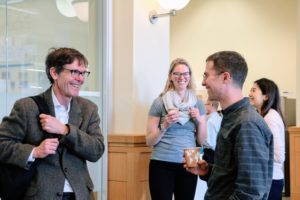
Participants from many campus groups (e.g., LBNL, CSS-IT) were eager to continue the stimulating conversation around data management. Check out the full program and information about the presented topics.
Photographs by Yasmin AlNoamany for the University Library and BIDS.
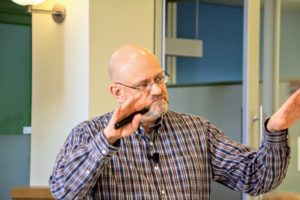
LDW at UC Berkeley was kicked off by a walkthrough and demos about Scopus APIs (Application Programming Interface), was led by Eric Livingston of the publishing company, Elsevier. Elsevier provides a set of APIs that allow users to access the content of journals and books published by Elsevier.
In the first part of the session, Eric provided a quick introduction to APIs and an overview about Elsevier APIs. He illustrated the purposes of different APIs that Elsevier provides such as DirectScience APIs, SciVal API, Engineering Village API, Embase APIs, and Scopus APIs. As mentioned by Eric, anyone can get free access to Elsevier APIs, and the content published by Elsevier under Open Access licenses is fully available. Eric explained that Scopus APIs allow users to access curated abstracts and citation data from all scholarly journals indexed by Scopus, Elsevier’s abstract and citation database. He detailed multiple popular Scopus APIs such as Search API, Abstract Retrieval API, Citation Count API, Citation Overview API, and Serial Title API. Eric also overviewed the amount of data that Scopus database holds.
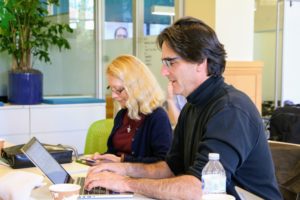
In the second half of the workshop, Eric explained how Scopus APIs work, how to get a key to Scopus APIs, and showed different authentication methods. He walked the group through live queries, showed them how to extract data from API and how to debug queries using the advanced search. He talked about the limitations of the APIs and provided tips and tricks for working with Scopus APIs.

Eric left the attendances with actionable and workable code and scripts to pull and retrieve data from Scopus APIs.
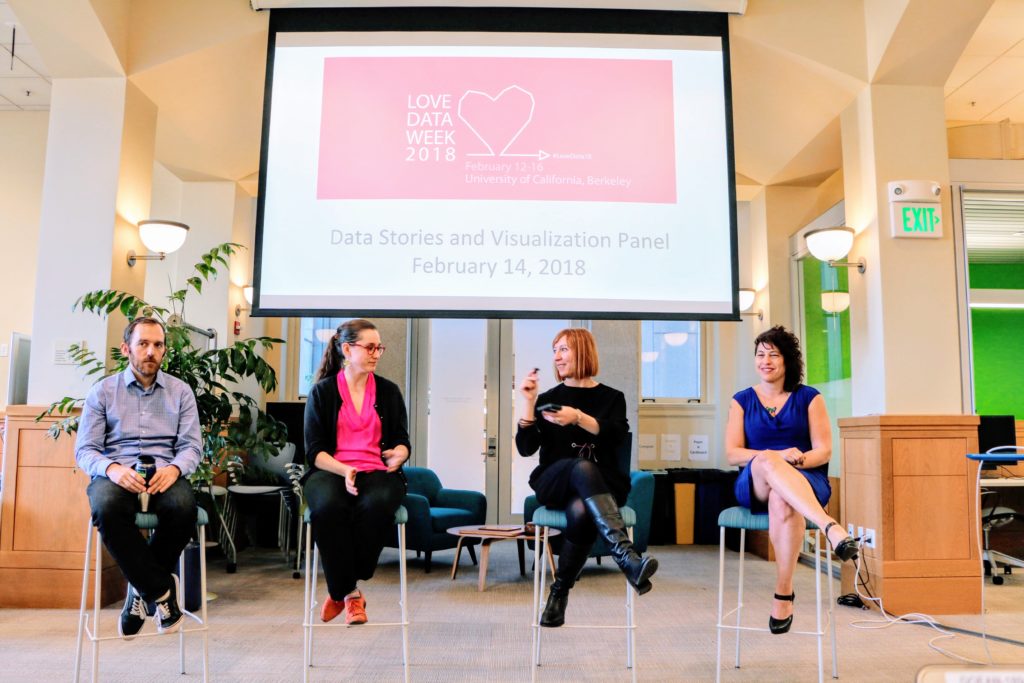
On the second day, we hosted a Data Stories and Visualization Panel, featuring Claudia von Vacano (D-Lab), Garret S. Christensen (BIDS and BITSS), Orianna DeMasi (Computer Science and BIDS), and Rita Lucarelli (Department of Near Eastern Studies). The talks and discussions centered upon how data is being used in creative and compelling ways to tell stories, in addition to rewards and challenges of supporting groundbreaking research when the underlying research data is restricted.
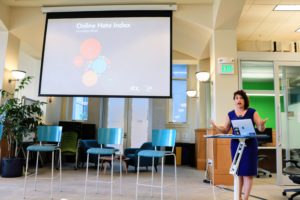
Claudia von Vacano, the Director of D-Lab, discussed the Online Hate Index (OHI), a joint initiative of the Anti-Defamation League’s (ADL) Center for Technology and Society that uses crowd-sourcing and machine learning to develop scalable detection of the growing amount of hate speech within social media. In its recently-completed initial phase, the project focused on training a model based on an unbiased dataset collected from Reddit. Claudia explained the process, from identifying the problem, defining hate speech, and establishing rules for human coding, through building, training, and deploying the machine learning model. Going forward, the project team plans to improve the accuracy of the model and extend it to include other social media platforms.

Next, Garret S. Christensen, BIDS and BITSS fellow, talked about his experience with research data. He started by providing a background about his research, then discussed the challenges he faced in collecting his research data. The main research questions that Garret investigated are: How are people responding to military deaths? Do large numbers of, or high-profile, deaths affect people’s decision to enlist in the military?
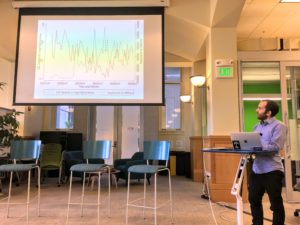
Garret discussed the challenges of obtaining and working with the Department of Defense data obtained through a Freedom of Information Act request for the purpose of researching war deaths and military recruitment. Despite all the challenges that Garret faced and the time he spent on getting the data, he succeeded in putting the data together into a public repository. Now the information on deaths in the US Military from January 1, 1990 to November 11, 2010 that was obtained through Freedom of Information Act request is available on dataverse. At the end, Garret showed that how deaths and recruits have a negative relationship.
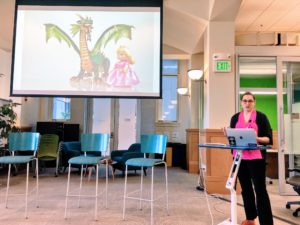
Orianna DeMasi, a graduate student of Computer Science and BIDS Fellow, shared her story of working with human subjects data. The focus of Orianna’s research is on building tools to improve mental healthcare. Orianna framed her story about collecting and working with human subject data as a fairy tale story. She indicated that working with human data makes security and privacy essential. She has learned that it’s easy to get blocked “waiting for data” rather than advancing the project in parallel to collecting or accessing data. At the end, Orianna advised the attendees that “we need to keep our eyes on the big problems and data is only the start.”
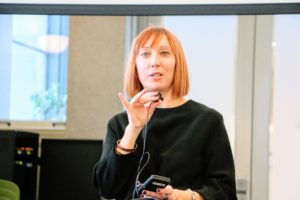
Rita Lucarelli, Department of Near Eastern Studies discussed the Book of the Dead in 3D project, which shows how photogrammetry can help visualization and study of different sets of data within their own physical context. According to Rita, the “Book of the Dead in 3D” project aims in particular to create a database of “annotated” models of the ancient Egyptian coffins of the Hearst Museum, which is radically changing the scholarly approach and study of these inscribed objects, at the same time posing a challenge in relation to data sharing and the publication of the artifacts. Rita indicated that metadata is growing and digital data and digitization are challenging.
It was fascinating to hear about Egyptology and how to visualize 3D ancient objects!

We closed out LDW 2018 at UC Berkeley with a session about Research Data Management Planning and Publishing. In the session, Daniella Lowenberg (University of California Curation Center) started by discussing the reasons to manage, publish, and share research data on both practical and theoretical levels.
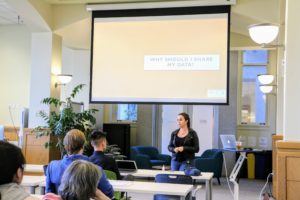
Daniella shared practical tips about why, where, and how to manage research data and prepare it for publishing. She discussed relevant data repositories that UC Berkeley and other entities offer. Daniela also illustrated how to make data reusable, and highlighted the importance of citing research data and how this maximizes the benefit of research.
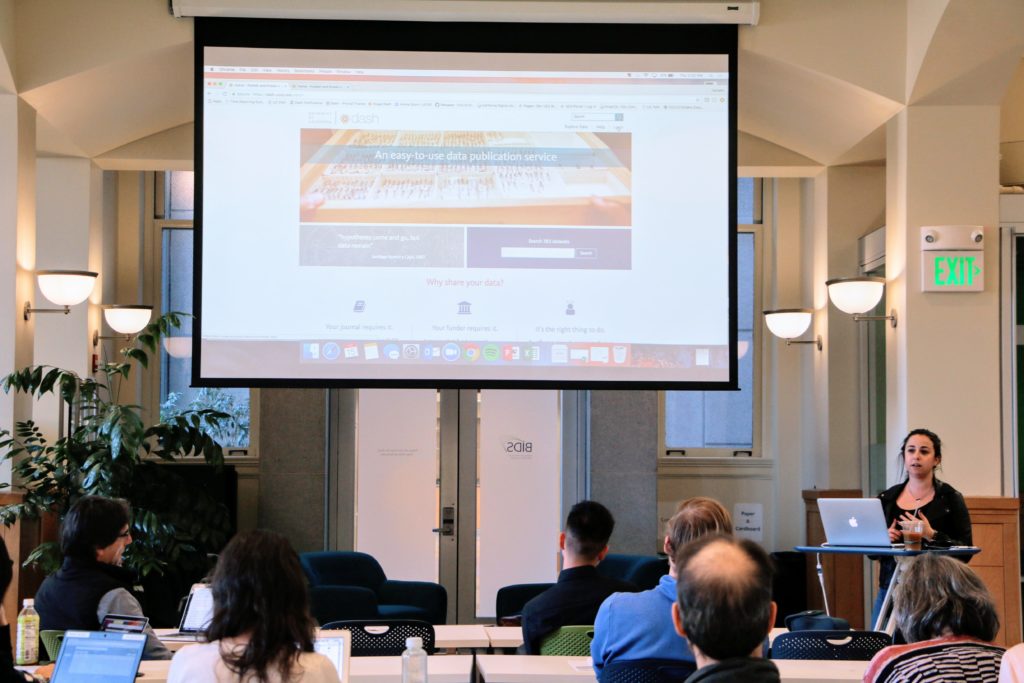
At the end, Daniella presented a live demo on using Dash for publishing research data and encouraged UC Berkeley workshop participants to contact her with any question about data publishing. In a lively debate, researchers shared their experiences with Daniella about working with managing research data and highlighted what has worked and what has proved difficult.
We have received overwhelmingly positive feedback from the attendees. Attendees also expressed their interest in having similar workshops to understand the broader perspectives and skills needed to help researchers manage their data.
I would like to thank BIDS and the University Library for sponsoring the events.
—
Yasmin AlNoamany
Workshop: Publish Digital Books & Open Educational Resources with Pressbooks
Publish Digital Books & Open Educational Resources with Pressbooks
Tuesday, February 20th, 1:10-2:30pm
Academic Innovation Studio, Dwinelle Hall 117 (Level D)
If you’re looking to self-publish work of any length and want an easy-to-use tool that offers a high degree of customization, allows flexibility with publishing formats (EPUB, MOBI, PDF), and provides web-hosting options, Pressbooks may be great for you. Pressbooks is often the tool of choice for academics creating digital books, open textbooks, and open educational resources, since you can license your materials for reuse however you desire. Learn why and how to use Pressbooks for publishing your original books or course materials. You’ll leave the workshop with a project already under way! Register at bit.ly/dp-berk
Upcoming Workshops in this Series 2017-2018:
- Scalar for Multimedia Digital Projects
- Copyright and Fair Use for Digital Projects
- Omeka for Digital Collections and Exhibits
- By Design: Graphics & Images Basics
- The Long Haul: Best Practices for Making Your Digital Project Last
Please see bit.ly/dp-berk for details.
Great talks and tips in Love Your Data Week 2017
Opening out #LYD17 w/great discussion of #securing research data. Thanks to our experts speakers @UCBIDS @DH @DLabAtBerkeley @ucberkeleylib pic.twitter.com/DqvIKb9sDL
— Yasmina Anwar (@yasmina_anwar) February 14, 2017
This week, the University Library and the Research Data Management program were delighted to participate in the Love Your Data (LYD) Week campaign by hosting a series of workshops designed to help researchers, data specialists, and librarians to better address and plan for research data needs. The workshops covered issues related to managing, securing, publishing, and licensing data. Participants from many campus groups (e.g., LBNL, CSS-IT) were eager to continue the stimulating conversation around data management. Check out the full program and information about the presented topics.
Photographs by Yasmin AlNoamany for the University Library.
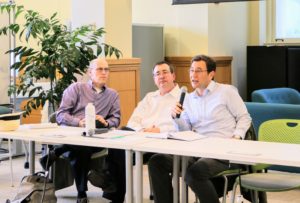
The first day of LYD week at UC Berkeley was kicked off by a discussion panel about Securing Research Data, featuring
Jon Stiles (D-Lab, Federal Statistical RDC), Jesse Rothstein (Public Policy and Economics, IRLE), Carl Mason (Demography). The discussion centered upon the rewards and challenges of supporting groundbreaking research when the underlying research data is sensitive or restricted. In a lively debate, various social science researchers detailed their experiences working with sensitive research data and highlighted what has worked and what has proved difficult.
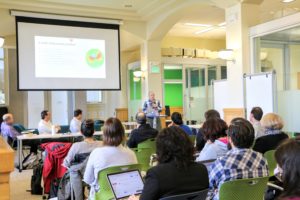
At the end, Chris Hoffman, the Program Director of the Research Data Management program, described a campus-wide project about Securing Research Data. Hoffman said the goals of the project are to improve guidance for researchers, benchmark other institutions’ services, and assess the demand and make recommendations to campus. Hoffman asked the attendees for their input about the services that the campus provides.
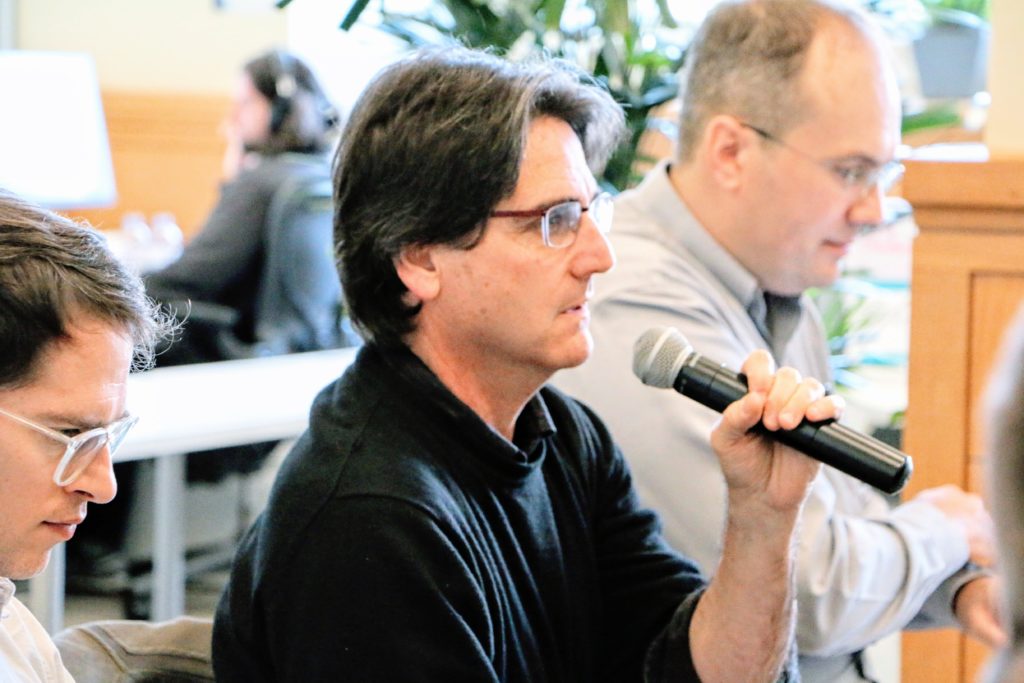
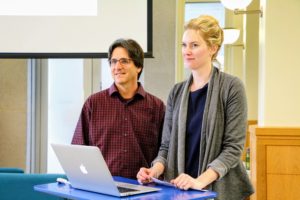
On the second day, we hosted a workshop about the best practices for using Box and bDrive to manage documents, files and other digital assets by Rick Jaffe (Research IT) and Anna Sackmann (UC Berkeley Library). The workshop covered multiple issues about using Box and bDrive such as the key characteristics, and personal and collaborative use features and tools (including control permissions, special purpose accounts, pushing and retrieving files, and more). The workshop also covered the difference between the commercial and campus (enterprise) versions of Box and Drive. Check out the RDM Tools and Tips: Box and Drive presentation.
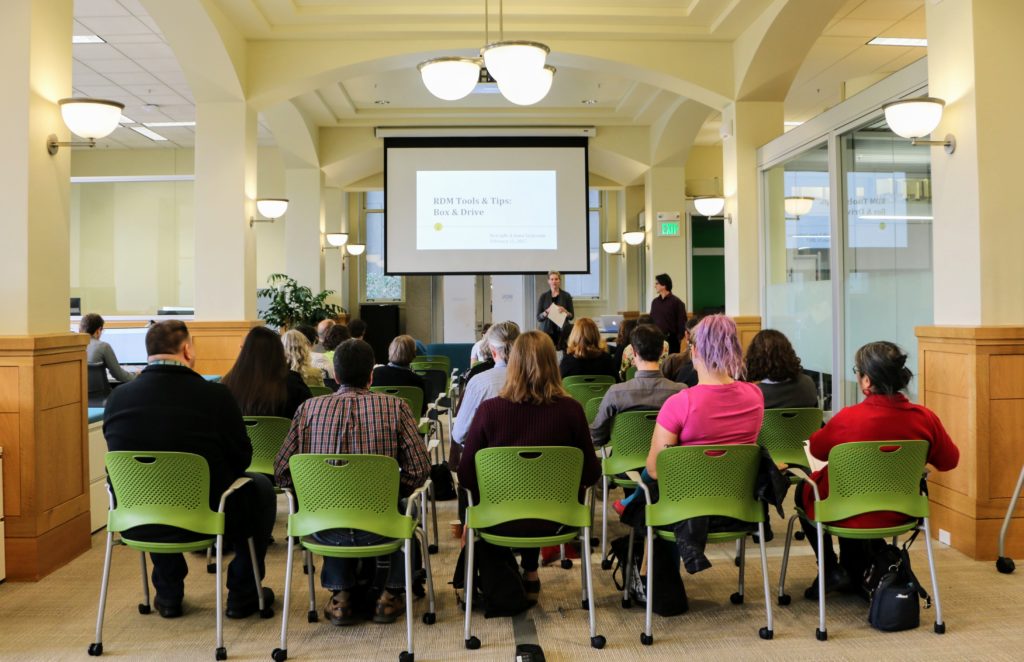
We closed out LYD Week 2017 at UC Berkeley with a workshop about Research Data Publishing and Licensing 101. In the workshop, Anna Sackmann and Rachael Samberg (UC Berkeley’s Scholarly Communication Officer) shared practical tips about why, where, and how to publish and license your research data. (You can also read Samberg & Sackmann’s related blog post about research data publishing and licensing.)
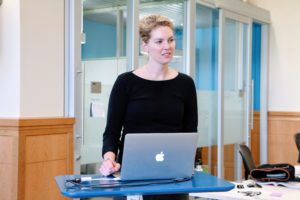
In the first part of the workshop, Anna Sackmann talked about reasons to publish and share research data on both practical and theoretical levels. She discussed relevant data repositories that UC Berkeley and other entities offer, and provided criteria for selecting a repository. Check out Anna Sackmann’s presentation about Data Publishing.
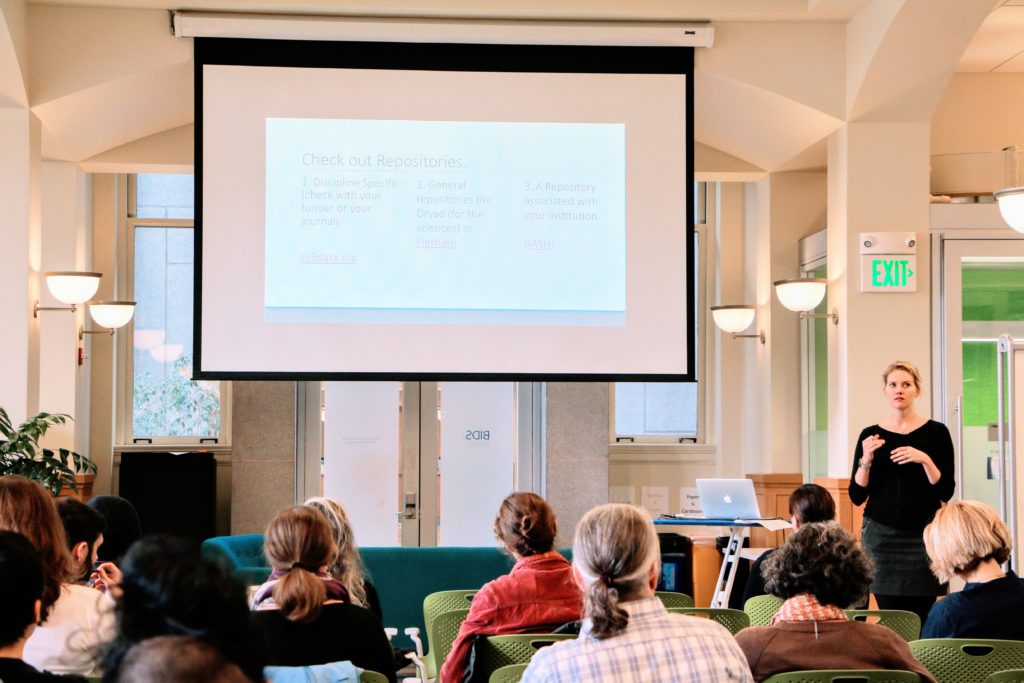
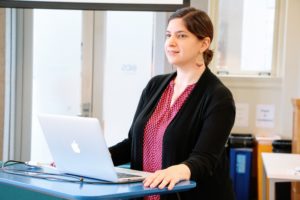
During the second part of the presentation, Rachael Samberg illustrated the importance of licensing data for reuse and how the agreements researchers enter into and copyright affects licensing rights and choices. She also distinguished between data attribution and licensing. Samberg mentioned that data licensing helps resolve ambiguity about permissions to use data sets and incentivizes others to reuse and cite data. At the end, Samberg explained how people can license their data and advised UC Berkeley workshop participants to contact her with any questions about data licensing.
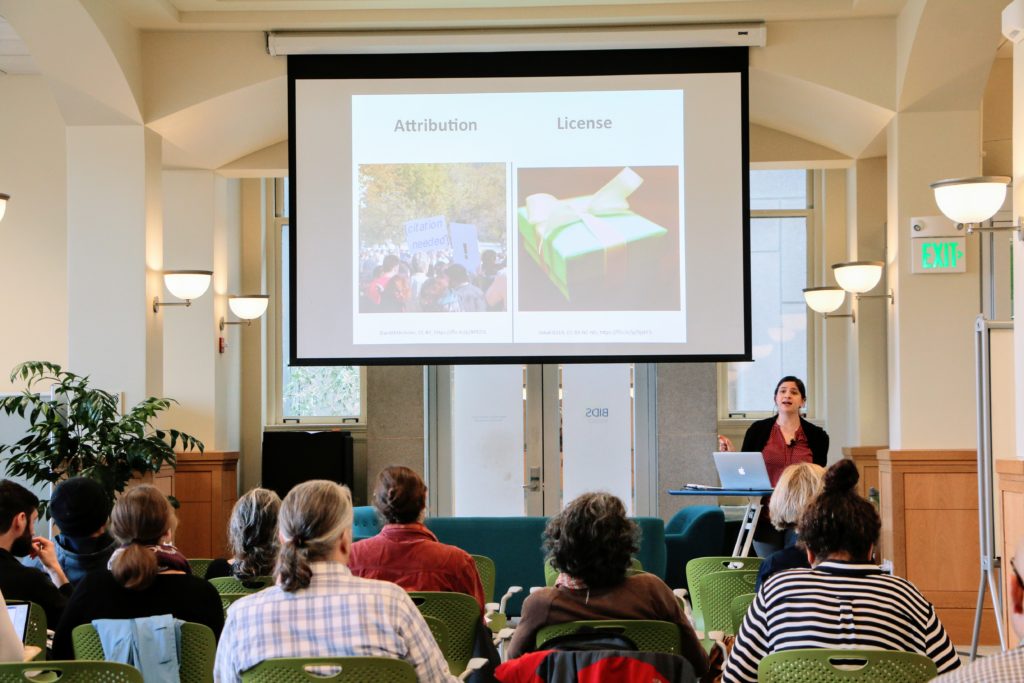
Check out the slides from Rachael Samberg’s presentation about data licensing below.
The workshops received positive feedback from the attendees. Attendees also expressed their interest in having similar workshops to understand the broader perspectives and skills needed to help researchers manage their data.
—
Yasmin AlNoamany
Special thanks to Rachael Samberg for editing this post.
Dissertations and Open Access
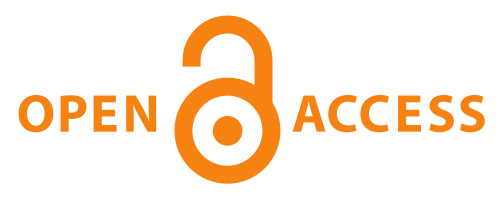
Your dissertation is complete. You have successfully defended it. Your advisors have signed off on it. Now, as part of your “obligation to make your research available to other scholars” (Graduate Division: Dissertation Writing and Filing) you need to submit it. Traditionally, it has been the responsibility of the University Library to make the work of its scholars available to the public. In the old days, this meant that the Library got a copy which they then cataloged and shelved in the dusty stacks. Anyone who wanted to read your major opus was welcome to come to campus, get a stack pass, page it at the circulation desk, then read the hard copy. Now, with dissertations filed electronically, the Library can make a digital version of your dissertation freely available for the whole world to read.
When you file your dissertation you must make a decision about whether to opt for Immediate Release (making your dissertation open access, and freely available to anyone, anywhere with access to the internet) or whether to Embargo it for up to two years.
A new guide on Dissertations and Open Access at UC Berkeley may help you answer the Immediate Release vs. Embargo question.
Opting for immediate release allows for greater dissemination of your work and has the advantage of allowing you to establish yourself as a scholar in your discipline. Some argue that this can protect against plagiarism by ensuring that others will discover your research prior to its publication as a book. By making it widely available, they contend, you are “staking your claim” on the research topic and its findings.
Others, however, most notably the American Historical Association (AHA), advise against making a dissertation immediately available because they believe that “university presses are reluctant to offer a publishing contract to newly minted PhDs whose dissertations have been freely available via online sources.” Some major university presses have weighed in on this topic, publicly declaring that they do not consider open access dissertations as “prior publications.” But there is no consensus. Opinion and practice vary from discipline to discipline.
In the end, your decision will be a personal one that you need to make for yourself in consultation with your advisor; see also the Grad Division guidelines.
Margaret Phillips, Education-Psychology Library
contact me at mphillip [at] library.berkeley.edu

